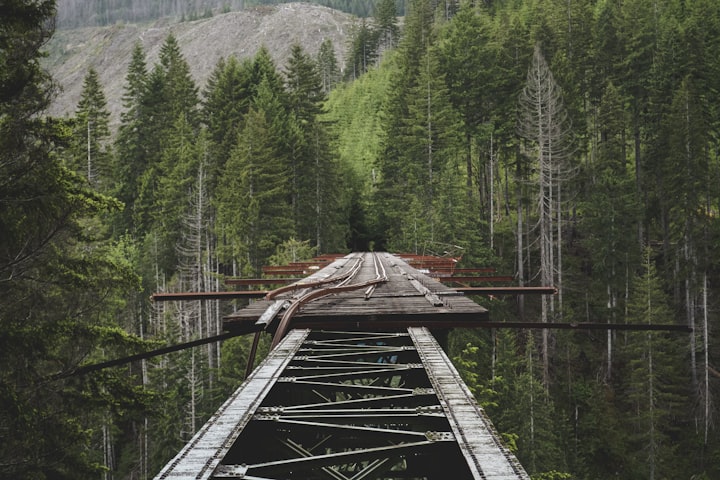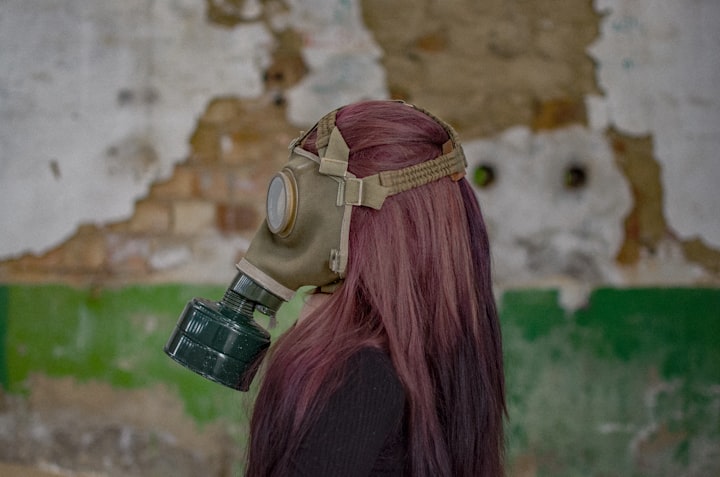The Crossing
Doomsday Diary Challenge

The Crossing
1
“I’m leaving. Please don’t try to stop me.”
“You’re forgetting that four people died yesterday trying to escape.”
“How could I forget?” I zipped my backpack. It was the same one I had brought with me to this place thirteen weeks ago.
“Babe,” he put his hand on the backpack, “just stop. Hear me out. You haven’t thought this through.”
I raised my voice. “The only thing I ever think about is leaving this detainment camp and finding our daughter!”
He winced. “Don’t be dramatic, Tanner. It’s a relocation community. We are part of the rebuilding effort. We are fortunate to be here.” His words were clear, but his smile was empty.
“What has happened to you? Where is the man I married eight years ago? No.” I thrust my hand at him. “I have a better question. Why aren’t you coming with me? If we don’t get out of here tonight, we’re going to die here.” I picked up my backpack. He did not interfere.
His nostrils flared. His hair had grown long during our detainment which led to the recent manbun. I was getting used to it. "Is this about our marriage?”
“Our marriage?” I echoed. “This is about our daughter.” I held up the string of green and golden beads that held a blue heart-shaped pendant. She received the necklace from the neighbor kids for her seventh birthday. Plastic and mass produced- it was special to her. “Have you found her?”
“You know I’m working on it.” Joshua shut his eyes and rubbed his temples. “I went to bridge…to be a witness.” He lowered his voice. “I’m not allowed to tell you. I didn’t want to endanger you.”
“Endanger me? What are you keeping from me, Joshua?”
“You didn’t see it, Tanner.”
I was scared of the answer, but I needed to know. “What happened?”
“Crossing is impossible. Drones patrol the bridge all day. If you’re spotted, you’re dead. The guards didn’t open fire until the first one reached the end. Then it was a hailstorm.”
I jerked my backpack away from him. “What kind of community kills citizens who choose to leave?”
He looked at me with tired, red eyes. “I have to believe our daughter is okay because that keeps me from cracking up. Let’s just stick with the plan: Steal the next delivery truck, and we’re gone.”
I hugged myself. “That’s what I came in here to tell you, Joshua. The truck’s not coming. They’re cutting off our supplies to incite fear-based dependence.” I moved close to him and whispered, “I’m getting the hell off this mountain. Please, come with me.” I handed the necklace to Joshua and gestured for him to pry open the locket.
Inside, he discovered a tiny scrap of paper I had hidden there. HAVE MAP & PHOTOS. RU W/ME?
I unzipped the door to our tent and stepped out into the frigid air.
A few seconds passed before Joshua emerged and shouted at my back, “If you die trying, what’s the point?” I kept walking, even when I heard Joshua zip the tent door closed.
2
Since the Great Flood of 2023, governments and relief agencies relocated people with certain skills to ever higher ground. Joshua was a demolitions expert; I was a librarian who restored maps on the side. We were recruited with the promise of lucrative academic positions at an exclusive school. We accepted the offer two months before the rains came.
Our latest ERC (Elevated Relocation Community) in the White Mountains of New Hampshire was as isolated as it was primitive. The entire summer had felt like winter. No delivery trucks had come in three weeks. Supplies were being rationed.
It did not take long to ascertain that the government knew the floods were coming. The fine print in our contracts kept us indebted to them for providing upgraded accommodations when the government relief ran out. They were not attempting to protect their citizens from unprecedented disaster; they were capitalizing on it. A new nation, full of leaders handpicked by the powers that be, faster than you can say “government enterprise”.
I was not alone in the search for missing children. It was tricky business how the government had separated countless families to further their projected rebuilding efforts. Children were sent to boarding schools while the grownups toiled day and night saving humanity under duress.
In the hours before the deluge, they rounded up everyone under sixteen. Endless assurances that the children would be fine did little to calm tensions. Our daughter was seven. “This is a mandated safety precaution. Your cooperation is required.” We were given barcodes for our loved ones, round the clock access to camera feeds and real-time locations.
That all changed when the disaster arrived. Communication came to an abrupt halt. No one had any answers. “Everyone is focused on moving citizens to higher ground. You’re fortunate to be an evacuee.” Each time they stripped away a freedom or a layer of trust, they reminded us how fortunate we were to be there.
One bridge remained between the camp and outside world. We had reliable intel that our children were staying in a ski lodge three days hike away.
“Three days alone on foot through unfamiliar terrain, in unpredictable weather? Your odds are grim.” The husky voice of our leader, Adam Deville, attempted to penetrate my mind and incite defeat.
I stepped away from him. “You can’t stop me, Adam.” If I stayed, I would be punished for trying to leave. But, leaving meant facing the elements with nothing but faith in my plan.
“I’m surprised your husband would let you make a trip like this alone.” He chuckled. “You know, everyone around here calls me Mayor. Seems they've accepted something that you haven’t.”
“I’d ask what that is, but I don’t care.” I kept walking, willing my limbs to be steady beneath the weight of my fear. I arrived at the gate of the eight feet high chain-link fence that surrounded our camp. Sentries in light gray camouflage stood guard on both sides.
“You’ve always been free to go, to abandon your community. But” he pointed south, “that bridge belongs to me.” His gravelly chuckle echoed behind me as I descended the rugged path recently worn by the utility trucks that spit up this place almost overnight.
“Let her go,” Adam yelled out. “If she tries to come back, shoot her.”
It was eight in the morning. If my plan worked, I would reach the bridge in three hours. I moved as fast as I dared down the unforgiving three-mile slope to the bridge. A buzz overhead alerted me to the security drones. I was not shocked that the mayor was using them to keep an eye on me. In fact, I was counting on it.
3
I looked at my watch. It was ten fifty-one. I climbed up on a large rock and spotted the bridge. Gray and unremarkable, the no-frills civic-built bridge spanned the chasm between this face of the mountain and the slope to the south that housed the ski lodge. It spanned a mere ten feet, but the drop was deadly.
A pair of drones circled the bridge. I jumped off the rock and jogged east toward the forest. There was no road, but I had memorized the way. Twenty minutes ago, I made myself visible to the drones. That opened up a forty-minute head start before whoever monitored the drones would report that I had not arrived at the bridge. Then, they would come looking for me.
I breathed in the sweet aroma of snow on the way. Running through virgin forest at full speed is impossible. I jogged with my hands out slapping away branches and steadying myself against trunks when I lost my footing. To my right I heard a voice and the unmistakable crackle of a walkie-talkie. My body went stiff while my heart hammered in my chest.
Still as a snowshoe hare, I waited for a sign that I was safe. I heard another squelch then, “Tanner?”
I gasped. “Joshua?”
“It’s me.” Joshua stepped out from behind a tree. I stepped toward him. He reached out for me but did not hug me. He shoved something in my pocket then whispered something then kissed my forehead. When you spend enough time with someone you learn their ticks, their laughs, their body language, their silent screams.
“What’s wrong?” I took a step toward him.
“Run, Tanner,” he whispered.
“What?” I asked.
I heard the crackle of a walkie-talkie and a man’s voice. Joshua went pale. “Run,” he repeated then shouted, “RUN!”
I wanted to freeze time to see his face once more but not this moment. The first time I saw him hold our daughter knowing she would be our only one or, the first time he told me about the wild taxi ride in Paris when he was twenty. His face at the altar when we said our vows.
Any moment but this.
I ran. The boots pursued me over snow, ice, and forest debris as I ran to the footbridge. My mind took refuge in the tent this morning with Joshua.
“Why are you resisting?”
“You don’t know if it’s safe!”
“Nor do I know who built or the last time it was inspected. What I do know is that a drone took a picture of it yesterday! We have a map and an exit. It’s time to go.”
His expression was heavy with anguish. “I…can’t. I wish you could understand.”
“I love you, Joshua,” I exhaled a painful breath, “and I will miss you. But I’m leaving.”
Part of me that was filled with doubt and wanted to turn around. Then I remembered our daughter. How could I eat or sleep not knowing if she was safe? Left without him because I thought he could not understand the sacrifice I was willing to make. He showed me that I was wrong.
I was moving at the safest possible speed through the dense forest when a footbridge suddenly appeared. More like a collection of planks and hardware held together by a wish and prayer. I stopped before I took a step too far. The entrance to the forgotten footbridge was narrow and dicey. I placed a boot on the threshold. Nothing happened. I took another step and heard an electronic beep.
“Don’t look back, Tanner!” Joshua’s voice thundered behind me. “RUN!”
They placed her in my arms minutes after she was born. Joshua had been out of town when he got the call. A newborn. The mother had died in a car accident. We were next on the list. Sleepless nights and months of legal obstacles but we got her. She was ours. I was not ready to let go.
It doesn’t matter. Keep running. The commotion behind me was drowned out by electronic beeps that I knew were rigged to explosives. My eyes locked onto the threshold at the end of the bridge. Seconds seemed like hours as I sprinted across the fatigued planks. Wishing I was a gazelle, I jumped over the last step. “This bridge doesn’t belong to you, Adam Deville!”
I landed on lose gravel and tumbled to the other side. Before I could regain my footing, gunfire slashed through the air. I stayed on the ground, willing my body to go flat. The violent noises stopped, and I felt hands lifting me. “You’re safe now, Mrs. Knight. My name is Lieutenant Browning with the US Army. Your husband told us you were coming.”
An explosion knocked us down. The good lieutenant scooped me up and did not stop until we reached a truck. He dumped me onto a hard bench. “What about my husband? Where are you taking me?”
“My orders are to take you to your daughter.”
Copyright Sarah Faith Larsen Barba June 2021
About the Creator
Sarah Faith
Creator of The Last Word on Spotify
https://anchor.fm/sarah-faith-larsen
and the dystopian short story Working for H2O,
narrated by actor Darren Marlar of the popular syndicated podcast Weird Darkness. https://weirddarkness.com/archives/5942






Comments
There are no comments for this story
Be the first to respond and start the conversation.